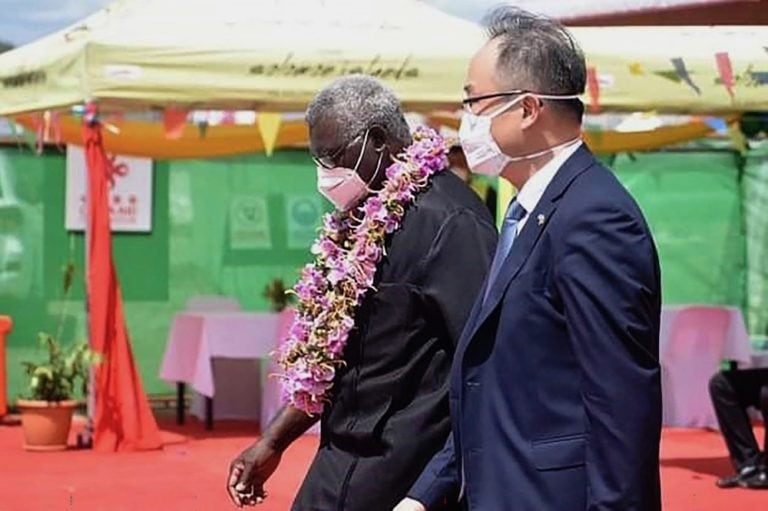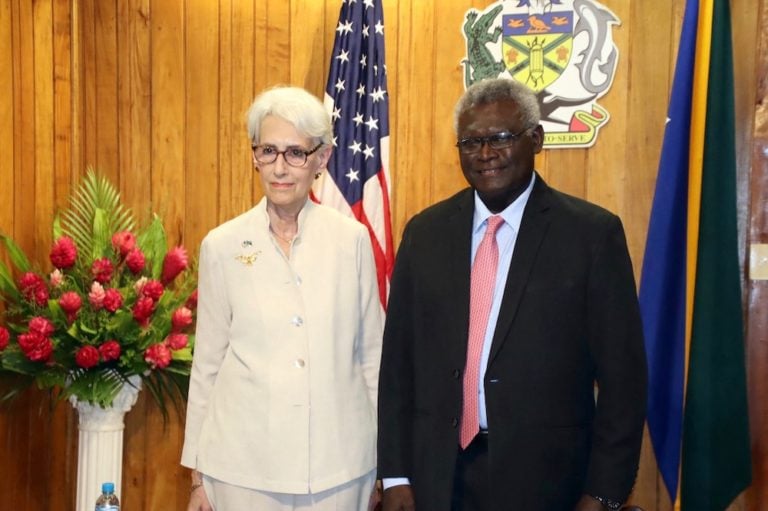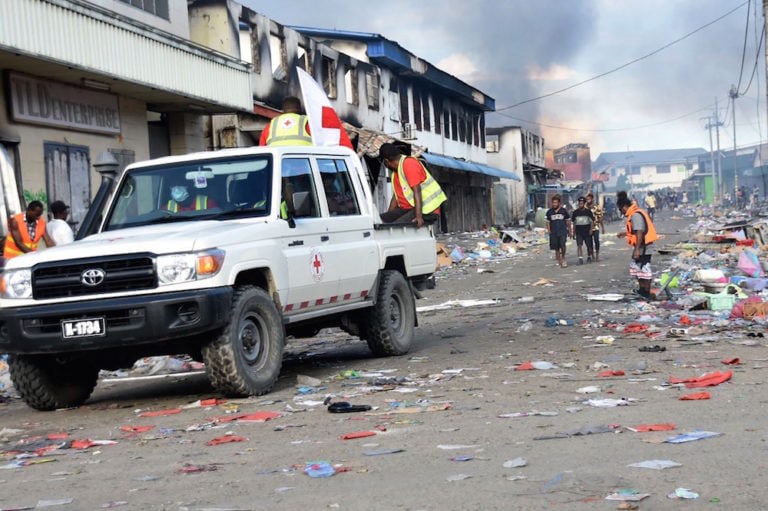The newspaper says the compensation demand for US$10,000 is a form of harassment against journalists and the media.
(PFF/IFEX) – 29 September 2011 – Rarotonga, Cook Islands – The regional media monitoring network the Pacific Freedom Forum has welcomed news that Solomon Islands newspaper the Island Sun has referred a $75,000 SBD (approx. US$10,000) compensation demand against them to the police. [Ed. note: In many Melanesian cultures, such as Solomon Islands, a compensation demand is a widely used tool for resolving disputes; it is not related to a civil or criminal case.]
The compensation demand was made on Thursday 21 September by supporters of West Honiara MP Namson Tram, following the front-page publication by Island Sun of a report into Tram’s purchase and private registration of his government vehicle. Island Sun and other media outlets had quoted Chairman of the Public Accounts Committee Mathew Wale referring to the deal as criminal, with the paper’s headline reflecting that label. The Media Association of the Solomon Islands, MASI, has issued a statement denouncing the compensation demand as a form of harassment against journalists and media organisations which is ‘inappropriate and disrespectful to media freedom in Solomon Islands.”
“We stand by our colleagues in their stance against compensation threats of this kind which are clearly nothing more than attempts to extort money and have nothing to do with a custom arrangement,” says PFF chair Titi Gabi of Papua New Guinea. “We call on police to complete their investigation in a timely manner, mindful of the fact that this compensation demand involves an MP, and threats to personal safety of journalists involved,” she says. She says harassment, abuse and threats against journalists should not be accepted as part of the news beat, and must be reported immediately to police.
“While the context of media ethics and traditional customs will inform the police investigation, we have to refer back to the rule of law. If journalists don’t report threats and harassment to the police, they are effectively signalling that illegal behaviour against them is acceptable.”
“As Pacific journalists, it’s important to understand that elements of culture are always going to be a point of contention in our work, but the bottom line is culture should make us better, not worse, at doing the best job for our communities,” says PFF co chair Monica Miller.
“Leading and award-winning journalists in the Solomon Islands have helped to develop one of the best national media associations in the Pacific. We commend MASI’s important work in developing training and codes of ethics and practice for journalists in the Solomons, and urge our colleagues in all outlets to advertise complaints procedures to their audiences so that more people understand what their choices are when they are offended by what is reported as news.”


